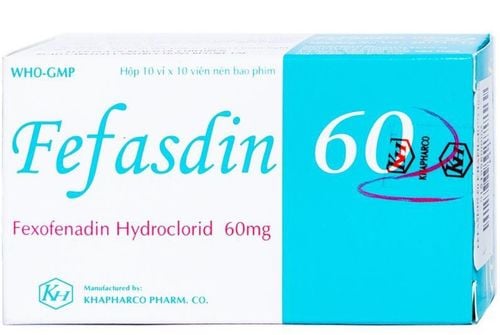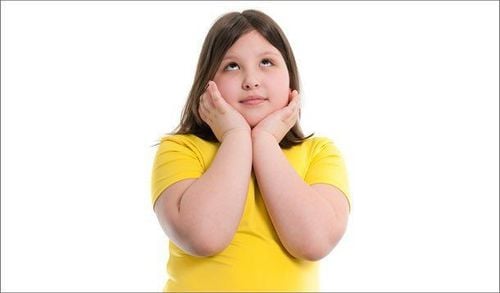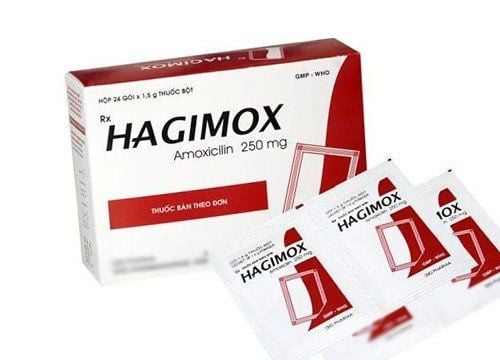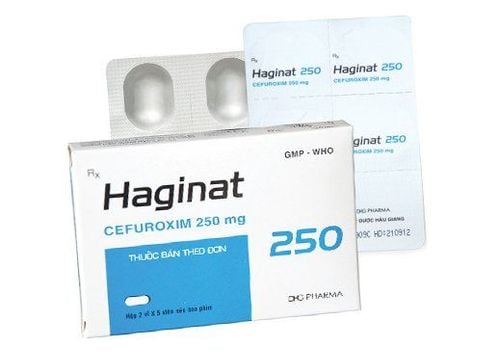This is an automatically translated article.
The article is professionally consulted by Master, Doctor Phan Ngoc Hai - Department of Pediatrics - Neonatology - Vinmec Danang International General Hospital.Children's bodies are still weak, their immune systems are not yet fully developed, and they are very susceptible to diseases, especially respiratory diseases. Therefore, parents need to be very careful to protect their children from pathogens.
1. The reason why 6-month-old babies are susceptible to respiratory diseases?
Children from 6 months to 36 months old are often susceptible to gastrointestinal and respiratory infections, especially when the weather changes seasons. The cause of this condition is because bacteria, viruses... that cause disease develop more strongly in hot and humid conditions. Meanwhile, children from 6 to 36 months old have a weak immune system, so they are not strong enough to fight pathogens. Therefore, children will face many health risks, are very susceptible to respiratory infections.The immune system plays an important role in a child's development. A well-functioning immune system helps children prevent pathogens from entering, destroy them once they enter the body, and recognize and remember to react more effectively the next time the pathogen appears. On the contrary, if the immune system is weak, children are often attacked by bacteria and viruses, causing diseases, especially respiratory infections.
Immune system has developed in the direction before 6 months, babies receiving antibodies from their mothers should have healthy immune systems. From 6-36 months, antibodies passed from mother to mother no longer exist, while the body has not yet produced enough antibodies, so the child's immune system is very weak, always at risk of infection.
2. Manifestations when children have respiratory infections
Some of the following symptoms will help parents recognize an upper respiratory infection in their child:Fever Fever is the first important symptom. Fever in diseases of the upper respiratory tract is usually high fever and intermittent. Body temperature is usually 39 degrees Celsius or higher.

Thân nhiệt thường là 39 độ C trở lên.
Cough Cough is a symptom that is present in nearly all upper respiratory tract infections. Because the throat wall of a child is extra sensitive to excessive secretions, coughing is often a common symptom.
Cough has many types: acute cough, dry cough, cough with phlegm... Cough is the first expression and also the last sign to signal the complete cessation of the infection. Usually cough is beneficial, but if not controlled well, cough makes children tired, insomnia, vomiting...
Shortness of breath Shortness of breath is a non-specific manifestation of upper respiratory tract infection. It is usually a symptom of lower respiratory tract infection, but in the case of a child with laryngitis it is very likely that the child will have difficulty breathing. Shortness of breath is a very rare symptom. Common symptoms are wheezing, wheezing, rapid breathing with age, children using accessory respiratory muscles when breathing, whining, exerting a lot of effort...
The above symptoms may appear individually or in combination. fit. For example, if your child has a mild illness, the symptoms are simply a runny, stuffy nose. If your child already has a fever, it is usually a sign that the illness has worsened and that the immune system is actively working to destroy the disease-causing microorganisms.
3. Taking care of children when they have a respiratory infection
When children with upper respiratory tract infection often have symptoms of runny nose, stuffy nose, mild fever, little cough, little vomiting, parents can treat it at home.Children with runny nose, stuffy nose Put 0.9% physiological saline into each nostril to dilute the nasal secretions, aspirate the nose with a nasal aspirator, then clean with a clean, dry cotton swab. Do not use mouth suction for children to easily spread more bacteria to children.
Clear the baby's nose before feeding or feeding to avoid vomiting.
Place the baby on the top of the head or hold the baby in an upright position.
Keep the child's body warm if it's winter, summer don't need to wear too thick clothes, avoid drafts, keep room temperature >= 25 degrees C.
Do not drip garlic juice for children because garlic can easily cause mucosal burns of children.
Children with fever If the child has a fever from 37.5 to less than 38.5 degrees Celsius, have the child lie down in a cool room, wear light, non-tight clothing. Use a soft towel to cool the child with warm water of 37 degrees Celsius on the forehead, armpit, and groin. Monitor temperature regularly every 30 minutes. Give your baby increased breastfeeding to rehydrate. If the child has a fever of 38.5 degrees Celsius or higher, parents need to take the child to a medical facility. Coughing Cough is more of a symptom of lower respiratory tract infection. Cough in upper respiratory tract infection may be due to increased secretion of sputum. Parents can give children herbal expectorants. If the child coughs a lot, parents need to take the child to the nearest medical facility.
Children vomiting, spitting up When a child vomits, parents need to have the child lie on his or her head to one side, clean the vomit from the child's mouth, throat and nose, dry the vomit on the child's body with a soft and warm towel, and change clothes for the child. young.
Feed the baby several times, one at a time, don't let the baby eat too much.
If the child vomits a lot, the mother should not give the child anti-vomiting drugs unless prescribed by the doctor.
If the child vomits a lot with signs of dehydration such as: sunken eyes, wrinkled skin ... more lethargic children need to see a doctor immediately.
During child care, if you have one of the following symptoms, you should notify a doctor or take the child to a medical facility for examination immediately:
Unable to drink or stop breastfeeding Child has difficulty breathing, rapid breathing over 60 breaths/1 minutes, or stop breathing, chest indrawing, cyanosis... Children with high fever over 38.5 degrees Celsius, continuous fever for 3-5 days or hypothermia.

Cho trẻ bú thành nhiều lần, ít một, không cho trẻ ăn quá no
4. Prevention of respiratory infections for children
Prevention is better than cure is the motto always recommended by medical experts. To prevent respiratory infections for children, mothers should note the following:Wash children's bedding regularly. Keep the house clean to avoid mold. Keep your baby warm when it's cold, especially at night. Pay attention to your diet, especially add plenty of water, fresh vegetables and fruits. Should divide meals for children and cook more liquid when the child is sick because at this time the digestive system is less active, so the body cannot absorb many nutrients. To help the baby breathe easier, put the baby on his side and facilitate the process of eliminating mucus in the body. Do not let the child's body temperature rise too high. When the child has a fever, promptly reduce the fever by taking warm water to soothe the body and dress the child in cool clothes. Keep your child's nose dry and clean by increasing nasal hygiene as soon as there are signs of rhinitis. Vaccination is the most effective and effective way to prevent diseases. Pediatrics department at Vinmec International General Hospital is the address for receiving and examining diseases that infants and young children are susceptible to: viral fever. , bacterial fever, otitis media, pneumonia in children, .... With modern equipment, sterile space, minimizing the impact as well as the risk of disease spread. Along with that is the dedication from the doctors with professional experience with pediatric patients, making the examination no longer a concern of the parents.
In addition, in order to prevent respiratory diseases that babies often get, parents should pay attention to nutrition to improve children's resistance. At the same time, add supporting foods containing lysine, essential micro-minerals and vitamins such as zinc, chromium, selenium, B vitamins,... snacks and less digestive problems.
Parents can learn more:
Why do you need to supplement Lysine for your baby?
The role of zinc - Guidelines for reasonable zinc supplementation
Please visit the website Vinmec.com regularly and update useful information to take care of your baby and family.














